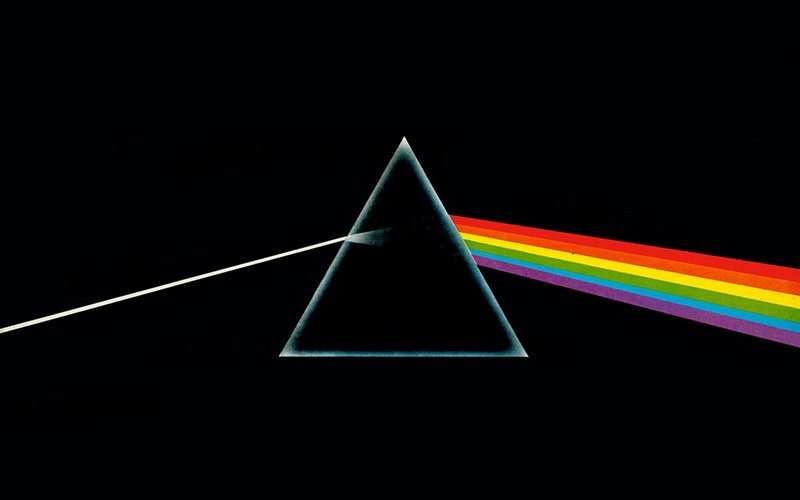
As KEXP celebrates its 50th anniversary, we’re looking back at the last half-century of music. Each week in 2022, KEXP pays homage to a different year and our writers are commemorating with one song from that year that resonates with them. This week, Roddy Nikpour reflects on Pink Floyd’s 1973 classic ‘The Dark Side of the Moon,’ the album’s continuing influence, and how it helps connect him to his father. Read or listen to the piece below.
It was the second year on the air for KEXP — or, as it was then known, KCMU. It was the start of an on-air legacy of sharing experimental records that continues to this day.
Maybe you’ve heard the “Dark Side of the Rainbow” myth. (It’s a conspiracy theory that the album syncs up perfectly with the movie The Wizard of Oz.) It’s less of a fact and more of a testament to how seamlessly the songs flow from start to finish.
That’s especially impressive because The Dark Side of the Moon covers a lot of ground in 43 minutes. It takes you through experimental synths, good old-fashioned piano, emotional vocals, and some of the most recognizable guitar solos in rock history.
Pink Floyd pushed the limits of what was possible in the 70s. It’s no wonder that my dad, Nick Nikpour — better known to me as Baba — s super into their music. His gateway to this album was the song “Time.” When he immigrated to the States and started a family in his 30s, the lyrics finally struck a chord with him.
“Time just was flying,” Baba said. “And before that, it didn’t click. It took me getting to that age group to feel that.”
I remember Baba taking my brother and me on a camping trip when I was seven-years-old. He was blasting “Time” to compete with the roar of the engine of his Toyota Supra. Baba turned to us from the driver’s seat and said, “You know, boys, someday these lyrics will mean something to you.” His attempt at bonding with his kids backfired (at least at the time). My brother and I scoffed and said something like: “No way, this is old people's music!”
I think about that a lot now when I’m driving down the freeway in my own Toyota (Prius, not Supra) also blasting the song at full volume.
Hearing the song “Time” triggers a gut feeling for me, as if I, too, am discovering some profound truth about life. Heading into my 30s, just like Baba, I find myself singing along: “And then one day you find ten years have got behind you / No one told you when to run, you missed the starting gun.”
You become your parents when you get older, and music plays a huge role in helping you realize it. To this day, Baba and I enjoy listening to this album together because it still blows him away.
“Coming up with those lyrics and putting all those emotions and words in an album — I have to classify them as philosophers,” Baba said in awe. “This album has to be at the top of my list of all time.”
Every now and then, he’ll remind me that he was right all along about his “old people music” now that I, too, am a so-called “old person.”
The Dark Side of the Moon is intergenerational. It strikes at timeless themes of mortality, society, and sanity. It also delivers a timeless sound that artists emulate to this day. So, you’ll catch me shamelessly blasting the record driving down the highway. And, maybe someday, I’ll get to tell my own kids all about this “old people music.”
As KEXP celebrates its 50th anniversary, we’re looking back at the last half-century of music. Each week in 2022, KEXP pays homage to a different year and our writers are commemorating with one song from that year that resonates with them. This week, Albina reflects on the 2016 Y La Bamba song “Ojo…
As KEXP celebrates its 50th anniversary, we're looking back at the last half-century of music. Each week in 2022, KEXP pays homage to a different year. This week, Janice Headley reflects on teenage angst and the 1986 Throwing Muses song "Hate My Way."
As KEXP celebrates its 50th anniversary, we're looking back at the last half-century of music. Each week in 2022, KEXP pays homage to a different year and our writers are commemorating with one song from that year that resonates with them. This week, Jasmine Albertson looks back at The Strokes' 200…